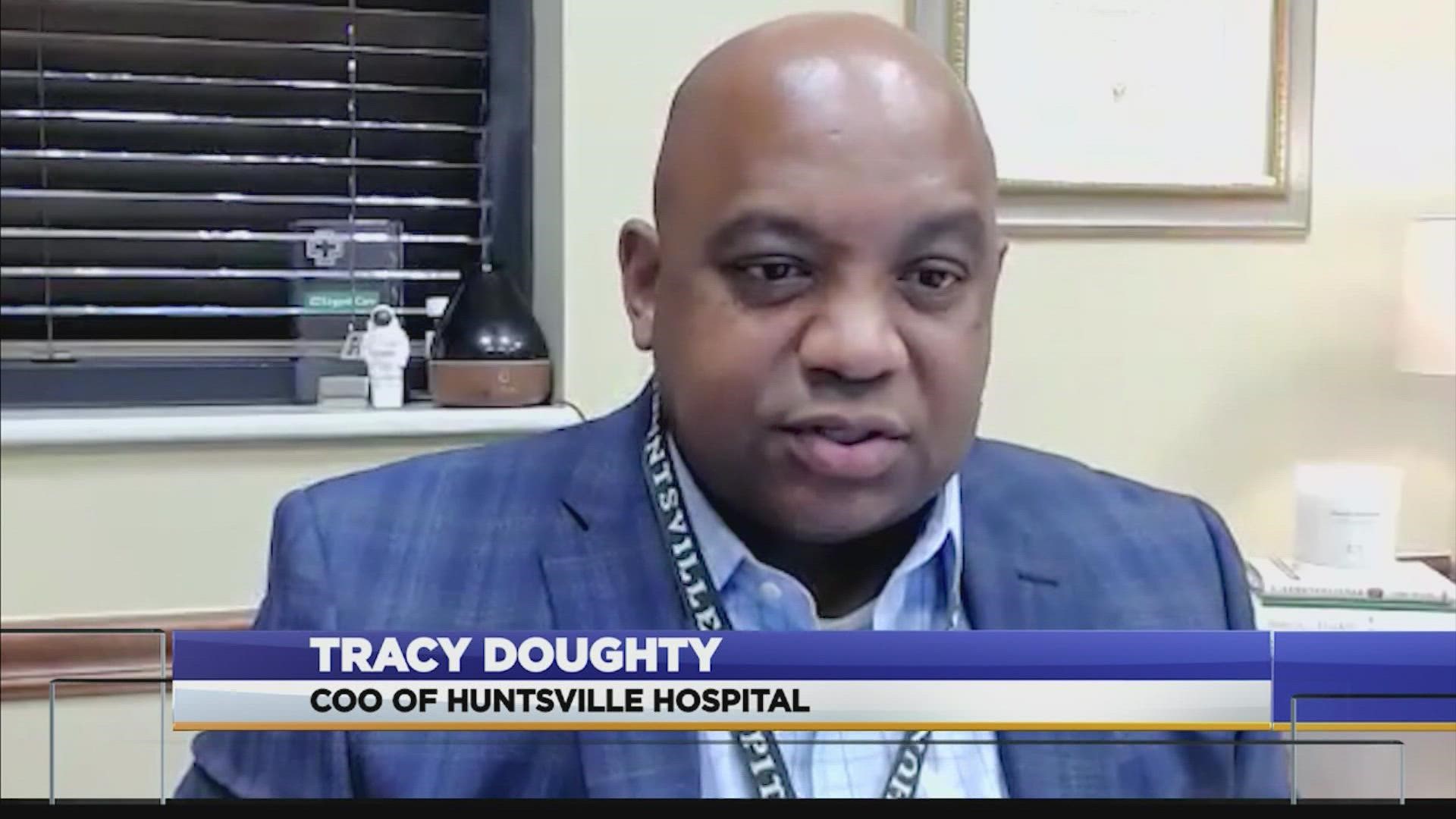HUNTSVILLE, Ala. — Huntsville and Madison hospitals are halting in-patient elective surgeries starting Monday, August 9, Huntsville Hospital COO Tracy Doughty confirmed to WZDX News.
Doughty said outpatient surgeries are still being done so long as they do not require the patient to stay in a hospital bed overnight.
"The hospital is very busy and beds are a precious resource, so we're trying to conserve all the beds that we can," said Doughty. "Anything that we can postpone from an elective standpoint and work with the physicians and the patient to cancel those for now. We're doing so to conserve beds for inpatients but outpatients procedures will continue to go on like always."
On Friday, August 6, Huntsville Hospital restricted its visitation policies as COVID-19 cases in the area soar. Most patients will be limited to only one visitor.
"We don't need an outbreak with our nursing staff, or our physicians to get sick, or somebody to come in and give it to a patient," Doughty said.
An exception to this rule is expecting mothers, who may have two adult visitors. Additionally, pediatric patients who are not being treated for COVID-19 can have one visitor in the waiting room and two adult visitors at their bedside.
The full visitation policy can be found on Huntsville Hospital's website.
The Centers for Disease Control and Prevention (CDC) has a plethora of information on how to protect yourself and other from the coronavirus.
The virus can easily spread from person to person, so the CDC recommends you stay at least 6-feet apart from people not in your household. The virus is spread through respiratory droplets that are produced when an infected person coughs, sneezes, breaths or talks, according to the CDC. Because of the this, the CDC recommends you wear a cloth facemask when around others and in public.
Additionally, the CDC recommends that you frequently wash your hands with soap and water for at least 20 seconds.
Symptoms to look out for include fever or chills, cough, shortness of breath or difficulty breathing, fatigue, muscle or body aches, headache, new loss of taste or smell, a sore throat, congestion or runny nose, nausea or vomiting and diarrhea, according to the CDC.
Click here to find more COVID-19 information from the CDC.
If you suspect you have the coronavirus, you should seek out testing and self-quarantine.
Click here to find more COVID-19 information from the Alabama Department of Public Health.

